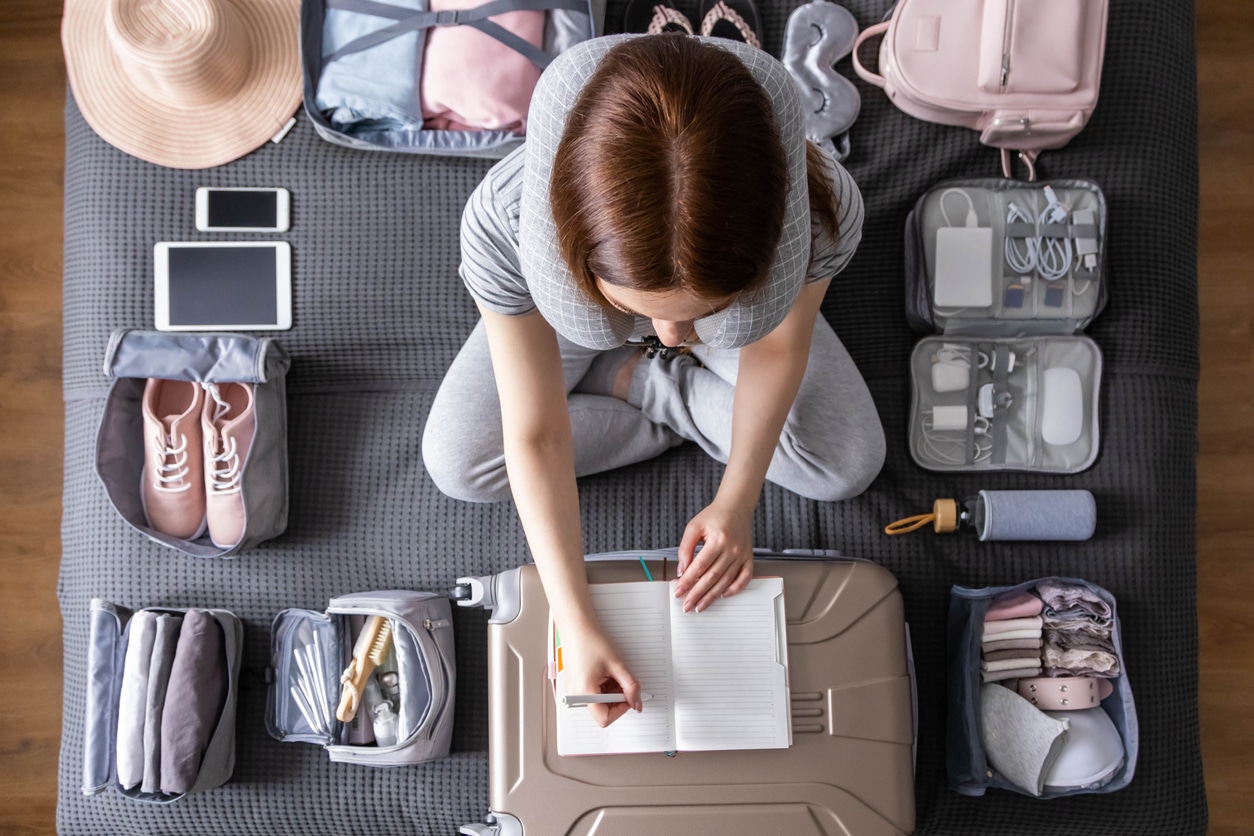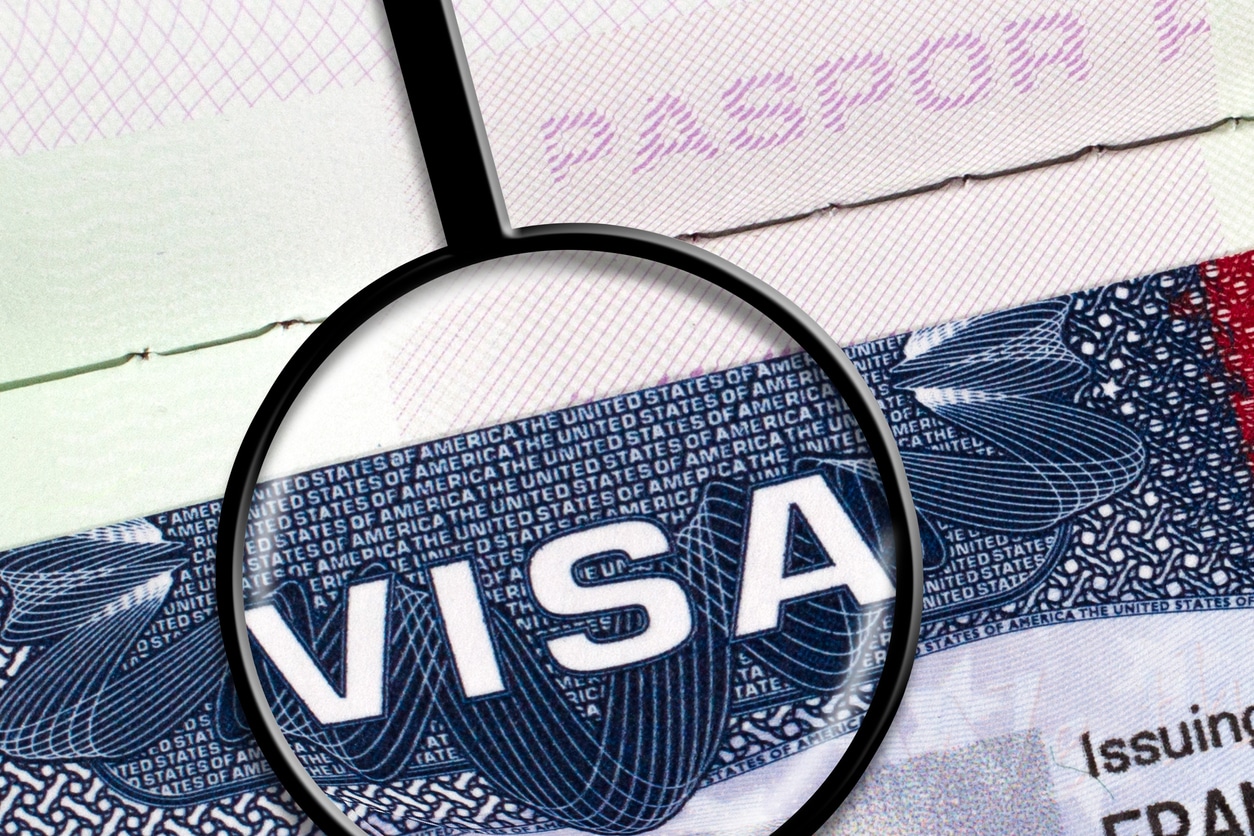Hey there, globe-trotting scholar! Hats off to you for snagging a seat at an international university.
Did You Know?
According to recent statistics, a staggering 2,68,923 Indian students jetted off to foreign lands for higher education in 2022-2023.
But here’s the kicker: while the idea of pursuing academic aspirations overseas is thrilling, deciding what to pack can feel like tackling a Rubik’s Cube blindfolded.
We understand – your parents might insist on bringing everything but the kitchen sink to recreate a home away from home. But let’s be real, that’s not exactly feasible!
In this blog we will embark on a journey to curate a pre-departure shopping list filled with only the essentials. Moreover, If you are curious about what should be cut for Indian students gearing up for an adventure abroad then you’re in the right place!
From adaptors to comfort foods, we’ll cover it all.
Let’s dive in and uncover the must-haves things to carry while traveling abroad from India!
Must-Haves International Student Packing List
These items are absolute musts. Make sure to pack them in your carry-on bag instead of your checked luggage, just in case your bag goes missing or there’s a chance of theft.
1. Passport and Visa
If you’re jetting off from your home turf to study abroad, your passport is your golden ticket. Most countries hosting study programs require you to snag a visa in advance, so remember to get that sorted before you start stuffing your suitcase.
It’s smart to have photocopies of your passport and visa tucked away just in case they decide to pull a disappearing act. Keep these copies separate from the originals. You can also stash electronic copies in a secure online folder or on a USB drive for easy access.
And hey, why not leave a set of copies with a trustworthy soul back home? It’s like having a guardian angel in case you find yourself in a passport pickle.
2. Essential Documents
Imagine this: you’ve just landed in a foreign country, and the immigration officer asks why you’re there. You confidently say you’re studying abroad, but oops! You forgot to bring along the paperwork to prove it. Talk about a study-abroad nightmare!
To avoid this scenario, make sure you’ve got all your important documents packed and ready to go. Here’s what you’ll need to keep in your carry-on bag:
- Your passport (and some extra passport photos, just in case)
- A printed copy of your student visa
- Your birth certificate (better safe than sorry)
- Any required FBI background checks
- Your local and international driver’s licenses
- Proof of enrollment from your university or program
- Your housing contract
- Transcripts from your university
- Any necessary electronic travel authorizations
- Proof of medical and travel insurance
- Contact info for the nearest embassy or consulate
- A list of emergency contacts
- Your health records, including any vaccination certificates
- Details of your travel itinerary, like flight tickets and hotel reservations
- Bank statements, if you need to show you’ve got enough funds for your trip
It’s a good idea to make photocopies of these documents and store them in the cloud, just in case something happens to the originals. And don’t forget to keep them in separate places in your luggage, but somewhere you can easily find them.
3. Basic First Aid Kit & Medications
While we hope your study abroad experience is smooth sailing, it’s always smart to be prepared for the unexpected. Put together a basic first aid kit with all the essentials:
- Bandages in different sizes
- Wound dressings
- Antibacterial wipes
- Cotton swabs and cotton wool
- Medical tape
- Tweezers
You should also consider carrying over-the-counter drugs such as antibiotics, antihistamine medications, painkillers, and antidiarrheal pills. Make sure you have adequate prescription drugs for the duration of your vacation.
Also, having a copy of your prescription on hand might be useful when contacting local healthcare specialists for assistance, even though pharmacies abroad might not accept it.
Don’t forget to include duplicates of your medical insurance, emergency contacts, and other vital information in your first aid kit. It’s essential to familiarize yourself with the contents of the kit, as it won’t be effective in an emergency if you’re unsure how to use it!
4. Local Currency
Accessing foreign funds in today’s digital era is typically most convenient with a U.S. credit or debit card. Nonetheless, it’s wise to carry some local currency or traveler’s checks in case of emergencies.
Having a stash of foreign cash can prove useful, particularly for spontaneous purchases at local markets or in situations where card payments are unavailable.
Obtaining local currency is simple. You can visit your nearby bank or drop by a currency exchange kiosk at the airport prior to departure. Being prepared is always a smart move!
5. Essential Toiletries
Keep your essential toiletries within reach by storing them in your carry-on bag. You never know when you’ll need to freshen up while traveling to your study-abroad destination, so having them readily available is crucial.
Below is the essential study abroad packing list you should pack:
- Shampoo
- Conditioner
- Body wash or soap
- Toothbrush
- Toothpaste
- Hairbrush or comb
- Sanitary items (for women)
- Deodorant
To promote responsible travel, consider opting for sustainable products instead of single-use travel-size toiletries. Here are some eco-friendly swaps to consider:
- Shampoo bars instead of travel shampoo bottles
- Soap bars instead of travel body gels
- Bamboo toothbrushes instead of plastic, disposable toothbrushes
- Toothpaste tablets
- Reusable menstrual cups
- Deodorant bars or refillable deodorant tubes
- Reusable makeup remover pads
- Bamboo cotton buds or reusable silicone cotton swabs
- Reusable tissues
It could be difficult to locate your regular hygiene supplies in certain places, so bring plenty with you to last you until you get settled. Specially products, which are often more expensive overseas, can be shipped just as they are, such as sunscreen and bug repellent.
Do not hesitate to ask your study abroad coordinator for advice if you have any questions concerning the availability of toiletries in your destination country!
6. Power Adapters & Converters
When it comes to keeping your gadgets juiced up on the go, you’ll need to pack some chargers. But wait – it’s not as simple as just plugging them in anywhere you go. Here’s why:
Different countries have different electricity voltages, so just changing the shape of your plug might not cut it. In fact, it could even fry your device! That’s where converters and adapters come in handy.
Make sure you know what kind of plugs and voltage your destination country uses so you can snag the right adapters for all your devices. Safety first, folks!
Furthermore, it’s a good idea to include a reliable power bank in case you get lost or have an emergency while studying abroad. You have no idea when you might require that additional liquid!
7. Basic School Supplies
When preparing for a study abroad trip, keep in mind the following: school supplies.
For every lesson, your lecturers may require you to have specific items. Therefore, it’s crucial to confirm with your study abroad counselor or check the class calendar to see what is required for each subject.
Also read “Top 10 Countries for Indian Students to Study Abroad” and find the perfect destination to pursue your academic dreams!
What Not to Bring When Studying Abroad
Feeling overwhelmed by the packing process for your upcoming adventure abroad? We totally understand! From favorite snacks to beloved childhood toys, the struggle is real. But fear not, because here’s a helpful list of items you can happily leave behind:
1. Skip the excessive snacks: While sharing a taste of home with your new friends can be fun, there’s no need to pack the entire grocery store. Embrace local cuisine and swap snacks for new culinary experiences!
2. Heavy liquids: Say goodbye to wasted suitcase space! Opt for travel-sized toiletry bottles or snag your liquids at your destination instead.
3. Books: As much as you love your book collection, those hefty tomes can weigh you down. Consider an e-reader or hitting up the university library for your literary fix.
4. Excessive electronics: Beyond your trusty smartphone and laptop, do you really need that extra gadget? Keep it minimal to avoid becoming a target for sticky-fingered thieves!
5. Bedding: Your cozy pillow might be tempting, but bedding takes up precious real estate in your luggage. Save space and shop for bedding when you arrive.
6. Valuables and luxury items: Keep it practical and affordable when it comes to watches, wallets, and shades. You’ll thank yourself if they go missing!
7. Culturally inappropriate items: Remember, you’re an ambassador for your home country. Leave behind anything that could be seen as disrespectful or appropriative. Embrace cultural appreciation, not appropriation!
With these tips in mind, you’ll be packing like a pro for your study abroad adventure. Bon voyage!
Also: Discover the best-fit courses abroad tailored for Indian students in our comprehensive blog “Popular Courses to Study Abroad for Indian Students.“
Packing Hacks
Now that you have your packing checklist for studying abroad organized, it’s time to master the art of fitting everything into your suitcase by employing these ingenious packing techniques:
1. Cubes and Organizers for Packing: Organize your clothing, gadgets, papers, etc, in a systematic manner by utilizing packing cubes and travel organizers. These practical tools are great for keeping your necessities accessible and organized.
2. Roll, Don’t Fold: This is a great way to make extra space in your bag. Rather than folding your clothing flat, roll them up like a burrito. In this manner, when you unpack your clothing, it will be wrinkle-free, and you will have more space for other stuff. It’s a simple tip that makes it easier to put more items in your luggage with less hassle.
3. Shoe Stuffing: Make the most of the space inside your shoes by stuffing them with socks, belts, or any other small items. Bonus: your shoes keep their shape and stay protected during transit.
4. Shower Cap Shoe Wrap: Keep your shoes together and your clothes clean by wrapping them in shower caps. It’s a simple trick that goes a long way in preventing any unwanted mess.
5. Binder Clip Magic: Keep things tidy with binder clips. Whether you’re organizing chargers, sealing snacks, or keeping documents in order, these little clips are lifesavers.
6. Leak-Proof Containers: Transfer your liquids into leak-proof containers to avoid any messy surprises. It’s the foolproof way to keep your shampoo from wreaking havoc on your stuff.
7. Only Pack the Essentials: Skip packing items you can easily find at your destination. Save space in your luggage and pick them up when you arrive.
8. Wear Bulky Items: Instead of cramming bulky items like jackets and boots into your suitcase, wear them on the plane. You’ll save space and stay cozy during your flight.
9. Use a Smaller Bag: Keep it simple by packing only the basics. Remember, you’ll accumulate stuff during your time abroad, so it’s okay to leave some things behind and live a little lighter.
With these savvy packing hacks, you’ll be a pro at fitting everything you need into your luggage for your study abroad adventure. Happy travels!
Don’t let homesickness dim your study abroad experience!
Find comfort and guidance in our blog: ‘Top 8 Tips to Overcome Homesickness When Studying Abroad‘.
Wrapping up
As you prepare for your study abroad journey, it’s crucial to pack wisely, focusing on essentials rather than unnecessary items. Embrace a flexible mindset, knowing that if you forget something, you’ll likely find it when you arrive.
Fulfilling your dreams of studying abroad can be smoother with the right preparations, and Great Learning offers invaluable support at every step.
Our Study Abroad Programs seamlessly integrate virtual and on-campus learning in iconic destinations such as the USA or Germany, offering not just academic enrichment but also rich cultural immersion.
Moreover, our program can save up to one-third of your degree expenses. Plus, we’ve streamlined the application process by eliminating the need for standardized tests like the GRE or TOEFL.
Upon completion, you can take advantage of post-study work visas, enhancing your international educational journey.
At Great Learning, we’re committed to fostering your academic and personal growth, ensuring your study abroad experience is truly transformative.
FAQs
Before traveling abroad for education, students should make sure to buy portable chargers, universal adapters, travel snacks, and essential personal hygiene products.
It’s recommended to pack at least three pairs of shoes for studying abroad: one for casual and comfort, another for formal or stylish occasions, and an extra pair for emergencies.
Yes, getting medical coverage is extremely advisable. This guarantees that in the event of a sickness or accident while traveling overseas, you will have access to medical treatment and help.









